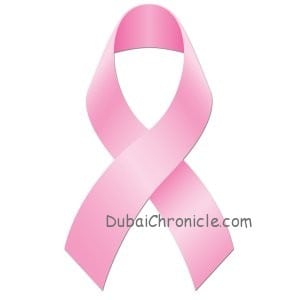
October is recognized worldwide as the Breast Cancer Awareness Month, focused on the prevention of the most common and frightening type of cancer in women. But the pink ribbon isn’t enough to truly show support and raise awareness on prevention and treatment, health experts are debunking common breast cancer myths.
Breast cancer is largely genetic. Breast cancer is among the most misunderstood diseases today, with most people believing it’s hereditary. But in fact, only 5% to 10% of all cases are result of gene defects, which means most women (around 80%) who get breast cancer, don’t have any family history of the disease. What causes then breast cancer? The truth is that science still doesn’t have an answer to the question, but lifestyle factors are the suspected offenders.
If your mother and grandmother had it, you can’t do anything to protect yourself. In this case, you are indeed at a higher risk, but to estimate your risk factor more precisely, you need to consider genetic tests. Start screening early (both MRI scans and mammograms), because treating cancers in early stage is much more successful.
There is nothing you can do to reduce the risk of developing breast cancer. There are factors you can’t change such as your age and family history, but this doesn’t mean you are doomed. On the contrary, losing pounds and maintaining a healthy weight reduces the risk, as well as starting to exercise on a regular basis. Stop, or at least limit the consumption of alcohol to no more than one drink a day – this will further decrease the risk of developing the disease.
Small-chested women have a lower risk for breast cancer. Also false – the bra size doesn’t play a role in getting the disease.
The only symptom we should be looking for is lumps. Approximately, 80-85% of all detected lumps are benign. And 10% of the women with breast cancer have no symptoms of any kind of problem. Other signs of cancer include skin irritation or dimpling, nipple pain or retraction, redness, discharge, swelling and thickening of the skin.
What about mammograms? There are many misconceptions about mammography and the two most common are that it prevents breast cancer, or in the other case – that it causes breast cancer. Both are false, say doctors, explaining that regular mammograms simply detect cancer that already exists. Around 90% of the tumors without any symptoms can be found with a mammogram.
Deodorants, plastic water bottles (left in a hot car) and birth control pills cause breast cancer. Usually, they don’t. There is some link between birth control pills and breast cancer, but scientists still don’t know what exactly it is. Another common myth is that younger women can’t develop breast cancer, but actually, 25% of the patients are younger than 50 years. Men are also at risk, despite popular belief that breast cancer is a woman’s disease.
Early detection is key to successful treatment, but prevention is the best way to ensure we stay healthy as long as possible. That’s why balanced weight, physical activity and low alcohol consumption are essential weapons in the fight against breast cancer.




































